A pacifist is somebody who opposes war and refuses to fight. There are different levels of pacifism.
- Absolute pacifists – Someone who refuses to kill whatever the circumstances. Even in self-defence.
- Conditional pacifists – Someone who generally opposes war, but may accept there are times when it is necessary. For example, when your country is invaded and you are defending your family and country.
- Selective pacifists – Someone who will decide whether a war is morally justified or not. For example, they may refuse to fight for their country if they feel that their country is engaging in an unjust war. Selective pacifists may particularly oppose war using weapons of mass destruction, e.g. nuclear weapons, biological weapons.
These are a list of people who have actively promoted pacificism or refused to fight for their country. They are not all absolute pacifists, but they share some or all of the basic pacifist principles.
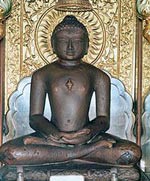 Mahavira (540 BCE – 468 BCE) Mahavira was an important propagator and reformer of Jainism. He helped to spread the Jain religion of non-violence across India. A key principle of Jainism is non-violence and Jains go out of their way to avoid hurting other sentient beings, even insects.
Mahavira (540 BCE – 468 BCE) Mahavira was an important propagator and reformer of Jainism. He helped to spread the Jain religion of non-violence across India. A key principle of Jainism is non-violence and Jains go out of their way to avoid hurting other sentient beings, even insects.
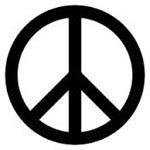 Émile Arnaud (1864–1921) Emile Arnaud was a militant pacifist who helped to coin the term pacifism in the late Nineteenth Century. Arnaud codified his beliefs into the ‘Code de la Paix’ in 1901. He advocated humanism, charity, tolerance and non-violent conflict resolution.
Émile Arnaud (1864–1921) Emile Arnaud was a militant pacifist who helped to coin the term pacifism in the late Nineteenth Century. Arnaud codified his beliefs into the ‘Code de la Paix’ in 1901. He advocated humanism, charity, tolerance and non-violent conflict resolution.


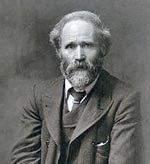 James Keir Hardie (1856 - 1915) Union leader, pacifist and Parliamentarian socialist. During the first year of the First World War, Keir Hardie was an outspoken critic of the war.
James Keir Hardie (1856 - 1915) Union leader, pacifist and Parliamentarian socialist. During the first year of the First World War, Keir Hardie was an outspoken critic of the war.
 Mahatma Gandhi (1869 – 1948) – Indian nationalist and politician. Gandhi advocated ahimsa – non-violent protest for Indian self-determination and independence.
Mahatma Gandhi (1869 – 1948) – Indian nationalist and politician. Gandhi advocated ahimsa – non-violent protest for Indian self-determination and independence.

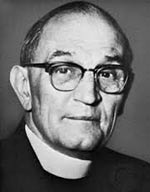 Martin Niemöller (1892 – 1984) Lutheran pastor and anti-Nazi theologian. A founder of the Confessional church which sought to reject the Nazification of churches. He served in the German navy in the First World War, but after being imprisoned in Nazi concentration camps and the end of WWII, he became a committed pacifist and proponent of the Peace Movement.
Martin Niemöller (1892 – 1984) Lutheran pastor and anti-Nazi theologian. A founder of the Confessional church which sought to reject the Nazification of churches. He served in the German navy in the First World War, but after being imprisoned in Nazi concentration camps and the end of WWII, he became a committed pacifist and proponent of the Peace Movement.

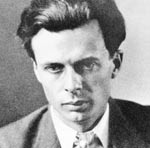 Aldous Huxley (1894 – 1963) English writer, satirist and pacifist. He is best known for his dystopian work – Brave New World. His application for US citizenship was refused on the grounds he wouldn’t commit to taking up arms to defend the US, citing philosophical objection to war.
Aldous Huxley (1894 – 1963) English writer, satirist and pacifist. He is best known for his dystopian work – Brave New World. His application for US citizenship was refused on the grounds he wouldn’t commit to taking up arms to defend the US, citing philosophical objection to war.
 Sophie Scholl (1921-1943) – As a student at the University of Munich, Scholl was arrested by the Gestapo for distributing anti-war leaflets. As a consequence, she was executed for ‘high treason’ in 1943. Motivated by her Christian faith, she opposed the Nazi ideology of Germany and was willing to risk her own life in standing up for her activities.
Sophie Scholl (1921-1943) – As a student at the University of Munich, Scholl was arrested by the Gestapo for distributing anti-war leaflets. As a consequence, she was executed for ‘high treason’ in 1943. Motivated by her Christian faith, she opposed the Nazi ideology of Germany and was willing to risk her own life in standing up for her activities.

 14th Dalai Lama. (1935 – ) The leader of Tibetans in exile. The Dalai Lama has sought to negotiate with the Chinese to respect traditions and culture of Tibetans. Believes in non-violent protest.
14th Dalai Lama. (1935 – ) The leader of Tibetans in exile. The Dalai Lama has sought to negotiate with the Chinese to respect traditions and culture of Tibetans. Believes in non-violent protest.


Famous conscientious objectors

William White (Australian) William White was an Australian teacher who refused to be conscripted into the army in 1966 when Australia was involved in the Vietnam war. He objected on grounds that ‘I am standing against killing‘ and ‘I am opposed to a state’s right to conscript a person‘
Ben Salmon (1889–1932) An American Catholic who refused to be drafted in the US army during the First World War. He was arrested and court marshalled. Initially sentenced to death, his sentence was commuted to life imprisonment. After the war, he was pardoned and released in 1920. He opposed the principle of a ‘just war’ citing Christian philosophy in opposing the war.
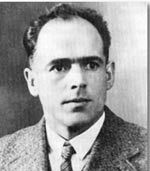

Citation: Pettinger, Tejvan. “Famous pacifists”, Oxford, UK biographyonline.net, Published 2 February 2014. Updated 6 February 2018.
Pacifism – A Philosophy of Nonviolence
- Pacifism – A Philosophy of Nonviolence
by Robert L. Holmes at Amazon.com
Related pages



Humanitarians – Famous people who have offered charitable service to others, including Mother Teresa, William Wilberforce, Florence Nightingale and Princess Diana.

People who fought for human/civil rights

